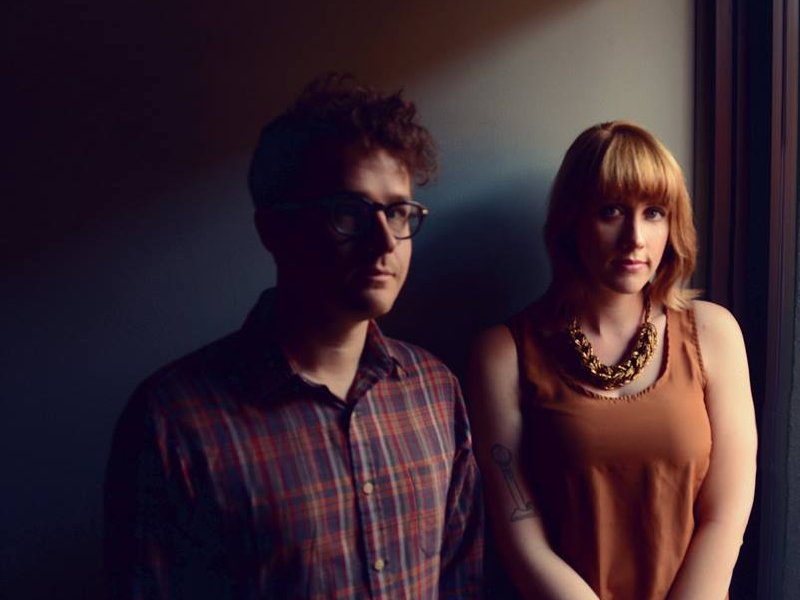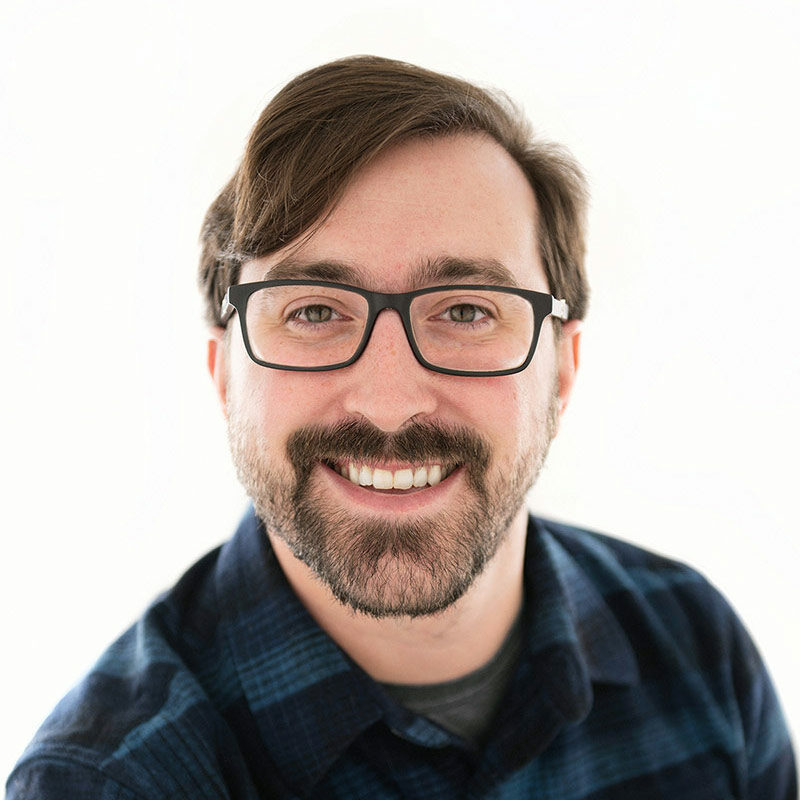In 2011, the indie rock duo of Jenn Wasner and Andy Stack – better known as Wye Oak – hit it big with "Civilian," the band’s third studio album. The record was beloved by both fans and critics alike. The AV Club’s Steven Hyden gave it an A in his review, and when it turned into year-end best of list season, Wye Oak was at the top of The AV Club’s list.
So three years later, when it became time for Wasner and Stack to follow up their critical darling, they did the predictable thing – they created something completely different.
Their latest, "Shriek" – released on April 29 – is a fairly radical departure, saying goodbye to the guitars of the previous albums and turning toward an electronic, synth-fueled sound. Depending on who you talk to, it’s either a brilliant new record and change of pace, the worst decision any band has ever made ever or bouncing back and forth somewhere in the middle.
The band is currently bringing the new album – and old hits as well – on the road, including a stop at Turner Hall Ballroom on Wednesday night. Before then, OnMilwaukee got a chance to talk to Stack about heading back on the road, the polarizing new album and what’s next for the now unpredictable duo.
OnMilwaukee.com: You guys are back out on the road again after your previous massive monolith of a tour you guys were on a couple of years back.
Andy Stack: Yeah, we got off of the list last year, but we’re back in the grind at this point.
OMC: Did you learn anything from that tour that you brought into this one about how to survive on the road on something like that?
AS: Yeah, we’ve been better at saying no, which I feel like is actually a pretty important skill. Because there’s this feeling – maybe some other people don’t have this feeling – or natural instinct to want to be always pleasing people. There’s a lot of people that you’re supposed to be pleasing when you put a record out.
So we’re getting better at realizing to pick our battles and what things are important. Sometimes, the most important thing is to have some personal time or have some personal time to actually get some sleep. It’s a little bit different, but we’re still doing it. Honestly, we’re still on the road mostly through mid-fall.
OMC: On your new album "Shriek," you guys made a very clear switch from guitar to a synth-based sound. What was the motivation behind that?
AS: It comes from a couple different angles. Jenn was starting to work on writing ideas for the new record and was having a really hard time connecting creatively with the guitar. We were sending ideas back and forth on that, but they just weren’t really coming. So she had the idea that she wanted to try and write a little bit differently, so she picked up the bass and did that.
We also both have varied interests in terms of production styles and instrumentation. I think much has been made of our previous record, especially with the live shows, of us being like a dyed in the wool guitar band, that that’s our defining thing. But that’s never really been how we’ve viewed it. It’s been a component of all of our records in the past, but we’ve also had keys and bass and strings and horns and all sorts of different stuff on other records.
It’s been less about saying, "Okay, this is the moment when there’s going to be the big guitar solo." It’s been much more about, "Okay, this is the kind of arc we want to create or the kind of tension or sonics we want to have in this song."
In the past, the guitar achieved that for us, and now we felt like we could create the sound or sonic landscape that we wanted using different stuff. We’ve always had success with limitations. Being a two-piece, having a limited amount of personnel to work with, limiting our palate in that way. That’s proven to be a kind of fruitful tool to aid in the process of writing. That was the case here.
It’s not like we’ve sworn off guitar or we’re only doing this music from now on or anything like that. It’s just this is one record that we wanted to examine that part and see where it takes us.
OMC: Yeah, this isn’t completely new territory for you guys at all, but it is kind of a nice way of expanding your sound without having to expand your numbers.
AS: Yeah, we work on that a lot. It’s especially true of the live show that we do, playing with different structures in order to create the most full-bodied sound that we can. In the studio, it’s always been sort of a non-issue because you can just do whatever you need to do. The two of us kind of have different skill sets, so it’s worked out really nice that certain stuff Jenn can’t really achieve happens to fall in my purview, and vice versa.
We’ve never felt really limited in the studio, but in the live show, it’s always been kind of a tightrope walk, especially true now with the new material. It’s very dense, and there’s a lot of layers going on at certain times. In the past, our shows have been subtractive in a way, where we take the layers from recording and kind of tear it down and figure out what the essentials are. Work out how to make a power duo that sounds more like a power trio or quartet.
With the new material, we didn’t really want to be subtractive. We wanted to be able to maintain the depth of the arrangements, so we put a lot of work into that. We’re doing more, even with our limitations. We’re asking more of ourselves than we have in the past. There’s a lot more kind of nuance and technical juggling going on in the past in order to really recreate the sound of the record.
OMC: The album just released about two or three weeks ago. How does it feel to have it out there now, and have this new branching off out there?
AS: It feels good. It’s kind of shocking in a sense to me that it’s just gotten released. We finished the record for about six months now. We finished the record in November, so it’s definitely alarming sometimes, but that’s the speed of the industry. But we started playing shows with this material for about two months now with about 30 or 40 performances in the lead-up to the release.
The response has been great. Even before the whole record was out in the world, we’ve been playing material that people weren’t familiar with. There’s a real buoyant, propulsive … I’d be hesitant to say happy but if you want to be simple about it, it’s definitely more poppy than our previous record. It’s been really cool to see people moving their bodies and getting into it in a way that you never would’ve seen with previous records. So we’ve really been encouraged by it.
We’re still playing old material and doing the guitar stuff. It’s a nice bit of variety, to have the different spectrums of sound throughout the show.
OMC: That must’ve been interesting to have a six-month period where the buzz and the news was growing that it was going to be a different album, and then to finally be able to say here it is.
AS: When we first announced that it was going to be different when we were making the record and let out that we were removing the guitar from the equation, there was a little bit of alarm amongst certain crowds of people thinking the new record was going to be unlistenable or something because it was going to be so different. But ultimately, it’s still Wye Oak. It still has the same sensibilities of songwriting and melody and how to create the arc of a song. As the record came into the world and people could actually hear it, everyone was like, "Oh, that’s different but the same." (laughs)
OMC: I’m sure when you first announced it, I’m sure there were some cries of selling out.
AS: I saw some people being like, "Oh, they’re making an electro-pop record because that’s just the flavor of the month, and they want to fall in line with everyone else." But if we wanted to play it safe that way, the thing to do would’ve been to make another record that sounded just like the last one because that was the one where we received the most success we’ve had. But that just wasn’t really what we wanted to do and what we felt we could do. So here we are, sellouts or not, we made what we made.
OMC: This is probably an insane question considering the album just came out, but do you have plans to stay on this musical path right now or go back to the guitars? Do you have any idea of what’s coming next?
AS: You know, the only thing I can say about that is the way we wrote this record was very different from the past. We were living on opposite sides of the country. I was in Oregon and Jenn was living out in Baltimore. The whole process of writing was very different, and obviously the palate of sound was very different. We weren’t exactly sure if we were going to be able to do it or if we were going to achieve something that we were happy with, but we’re really proud of it and happy.
I think through the process of doing it the way we did, we feel pretty uninhibited in terms of what kind of approach we can take. If we want to make a symphonic record, we feel like we have the tools to make it. If we want to make a techno record or something (laughs). We don’t have to limit ourselves to a particular style or prescribed approach.
We’re not to the point yet of writing or putting new material together. But I think all of the above is basically the thing. It’s not like we’re never going to have guitars in our songs again, and the synth stuff is great, and I’m sure there will be more of that in the future.
As much as it is a gigantic cliché to say that one has always had a passion for film, Matt Mueller has always had a passion for film. Whether it was bringing in the latest movie reviews for his first grade show-and-tell or writing film reviews for the St. Norbert College Times as a high school student, Matt is way too obsessed with movies for his own good.
When he's not writing about the latest blockbuster or talking much too glowingly about "Piranha 3D," Matt can probably be found watching literally any sport (minus cricket) or working at - get this - a local movie theater. Or watching a movie. Yeah, he's probably watching a movie.







